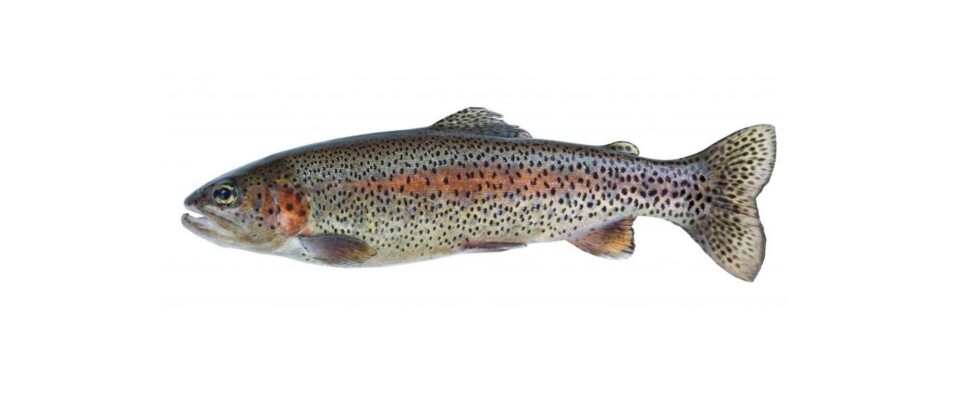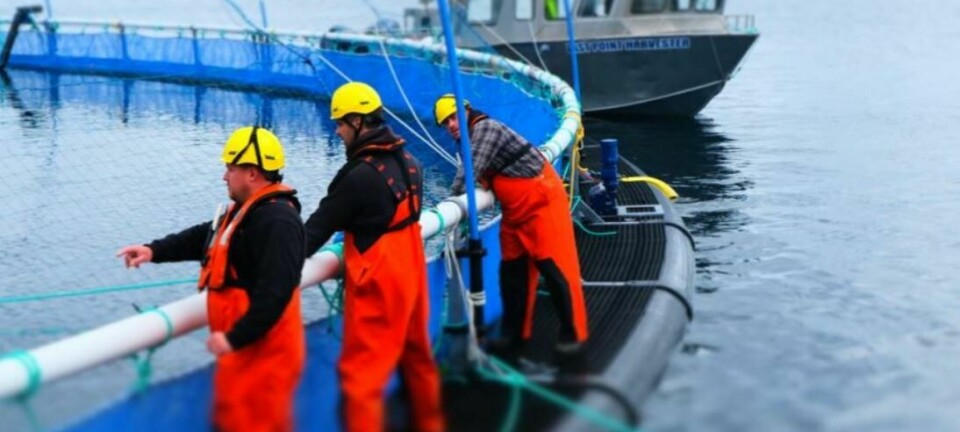
Washington State fish farms ban 'is out of step with America'
Lobbyist points to growing bipartisan support for sector in Congress
A fish farming lobby group in the United States has criticised a vote by Washington State’s Board of Natural Resources yesterday to ban all commercial finfish net-pen aquaculture in state waters.
Drue Banta Winters, campaign manager for Stronger America Through Seafood (SATS), said: “This decision in Washington State is out of step with the growing bipartisan momentum for open ocean aquaculture across the country and in the nation’s capital, as Americans and environmentalists recognise that aquaculture can be conducted without harming the environment, is beneficial for our communities, and is a sustainable source of protein farmed here at home.
“(US Government agency) NOAA Fisheries has published several scientific reports and publications analysing the effects of net pen Atlantic salmon farming in the Pacific Northwest. Together, these documents assess the risks associated with salmon farming, identify best management practices to minimise risks, and find no harm to Endangered Species Act (ESA)-listed salmonids from the operations of existing farms.
'The wrong direction'
“Aquaculture is increasingly recognised by those on both sides of the aisle (in Congress) as a critical industry to boost our nation’s economy and ensure a steady supply of healthy, sustainable, American-raised protein. The US should be making every effort to expand aquaculture in the US, and today's decision in Washington State is a step in the wrong direction.”
Net-pen farming of non-native fish – which has in practice meant Atlantic salmon – has been banned in Washington since 2018, following an escape of upwards of 150,000 salmon (the number in contested) after the collapse of a farm owned by Cooke Aquaculture Pacific in 2017.
Cooke pivoted to farming native steelhead salmon (seagoing rainbow trout) but was thwarted by the state’s public lands commissioner Hilary Franz. In 2022, she refused to renew leases for Cooke's farms in Puget Sound, and a few days later she signed an executive order prohibiting commercial finfish net pen aquaculture on state-owned aquatic lands managed by her agency, the Washington State Department of Natural Resources (DNR).
A win for Franz
In 2023, a court ruled that Franz’s 2022 ban does not make the practice illegal, but yesterday’s decision by the Board is a victory for Franz, whose term as commissioner has now finished.
Despite the NOAA Fisheries studies, Franz told the Board that “there is no debate that there are impacts” from net-pen aquaculture, according to a report in the Seattle Times.
She pointed out that California and Alaska already ban commercial net-pen farming, and that British Columbia is currently phasing in a ban (transition to floating closed containment and land-based aquaculture) by 2029.
The Seattle Times reported that the vote passed with two board members, Chris Reykdal and Wendy Powers-Schilling, abstaining. Several board members said even though they voted for the ban that additional work should continue to examine whether to facilitate fish farming in the future, on land or in Puget Sound.
Only state waters
Jeremy Wilbur, chair of the Swinomish Tribe, and Emma Helverson, executive director of the Wild Fish Conservancy, were among those who supported the ban at a public hearing before the vote.
But opponents said rural communities need the jobs, and the world’s growing population needs the food.
The Jamestown S’Klallam Tribe supported net-pen farming as an important economic opportunity because fishing has become so diminished as an industry. Maria Smithson, representing Salish Fish, the tribe’s joint venture with Cooke Aquaculture, said consideration of the rule was rushed and should be delayed, reported the Seattle Times.
Commercial net-pen farming in Washington may still proceed on other water bodies not leased by the state. The ban also does not affect raising native fish for release to the water or raising fish for tribal subsistence and ceremonial use.





















































